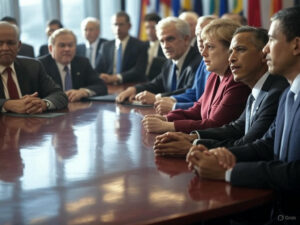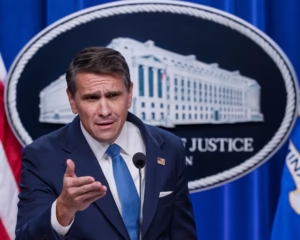In a surprising turn of events, President Donald Trump has withdrawn the nomination of billionaire entrepreneur and private astronaut Jared Isaacman for the position of NASA Administrator. The decision, announced just days before Isaacman’s expected Senate confirmation, has sparked widespread discussion about the intersection of politics, private enterprise, and the future direction of America’s space program.
1. Isaacman’s Nomination and Background
Jared Isaacman, the 41-year-old CEO of Shift4 Payments and founder of Draken International, has been a prominent figure in the commercial spaceflight industry. He gained national attention by funding and commanding the Inspiration4 mission in 2021, the first all-civilian orbital spaceflight. Isaacman’s close ties with SpaceX, including leading the Polaris Dawn mission and planning future flights aboard SpaceX’s Starship, positioned him as a candidate who could bridge the gap between public space initiatives and private enterprise.
His nomination by President Trump in December 2024 was seen as a move to infuse NASA with entrepreneurial spirit and accelerate the agency’s collaboration with private companies. Trump praised Isaacman as “an accomplished business leader, philanthropist, pilot, and astronaut,” highlighting his potential to lead NASA into a new era of exploration and innovation.
2. Political Contributions and Controversy
Despite initial support, Isaacman’s nomination faced scrutiny due to his political contributions. Campaign finance records revealed that Isaacman had donated to Democratic figures, including Senator Mark Kelly and the California Democratic Party, raising concerns among Republican lawmakers and the Trump administration. Although Isaacman described himself as “relatively apolitical” during his confirmation hearings, the revelation of these donations led to questions about his alignment with the administration’s agenda.
The situation was further complicated by Elon Musk’s recent departure from his advisory role in the Trump administration’s Department of Government Efficiency. Given Isaacman’s close association with Musk and SpaceX, some interpreted the withdrawal of his nomination as a political maneuver reflecting shifting alliances within the administration.
3. Implications for NASA’s Direction
The withdrawal of Isaacman’s nomination comes at a critical juncture for NASA. The agency is navigating budget cuts proposed by the Trump administration, which include a 25% reduction in NASA’s 2026 budget, slashing it from $24.8 billion to $18.8 billion. These cuts threaten to impact key scientific missions, including Mars sample return projects and the development of the Nancy Grace Roman Space Telescope.
Isaacman’s leadership was anticipated to bolster NASA’s partnerships with private companies, particularly in advancing human spaceflight and exploration missions. His experience with SpaceX and vision for a commercial space economy aligned with efforts to modernize NASA’s operations. With his nomination withdrawn, the agency faces uncertainty in maintaining momentum toward these goals.
4. Reactions from the Space Community
The decision to withdraw Isaacman’s nomination elicited mixed reactions from the space community. Elon Musk publicly praised Isaacman as “competent and good-hearted,” expressing disappointment over the withdrawal. Astrophysicist Jonathan McDowell described the move as a loss for NASA, emphasizing Isaacman’s potential to drive innovation within the agency.
Conversely, some officials viewed the decision as necessary to ensure that NASA’s leadership aligns with the administration’s priorities. White House spokesperson Liz Huston stated that the next NASA administrator must fully endorse President Trump’s “America First” agenda, particularly focusing on Mars exploration and space dominance.
5. Looking Ahead: NASA’s Future Leadership
With Isaacman’s nomination rescinded, NASA’s leadership remains in flux. Janet Petro, former Deputy Director of the Kennedy Space Center, continues to serve as acting administrator. The administration has yet to announce a new nominee, leaving the agency’s direction and strategic planning in a state of uncertainty.
The withdrawal underscores the complex interplay between politics and space exploration. As NASA seeks to balance scientific discovery with national interests, the selection of its next leader will be pivotal in shaping the agency’s trajectory. Stakeholders within the space community and beyond will be closely monitoring developments to assess the implications for America’s role in the final frontier.
Conclusion
The abrupt withdrawal of Jared Isaacman’s nomination as NASA Administrator highlights the intricate relationship between political considerations and the advancement of space exploration. As the agency confronts budgetary constraints and seeks to maintain its leadership in space, the selection of a new administrator will be critical in determining NASA’s path forward. Stakeholders and observers alike await further announcements to understand how these developments will shape the future of American space endeavors.
Subscribe to trusted news sites like USnewsSphere.com for continuous updates.
[USnewsSphere.com / ed.]





